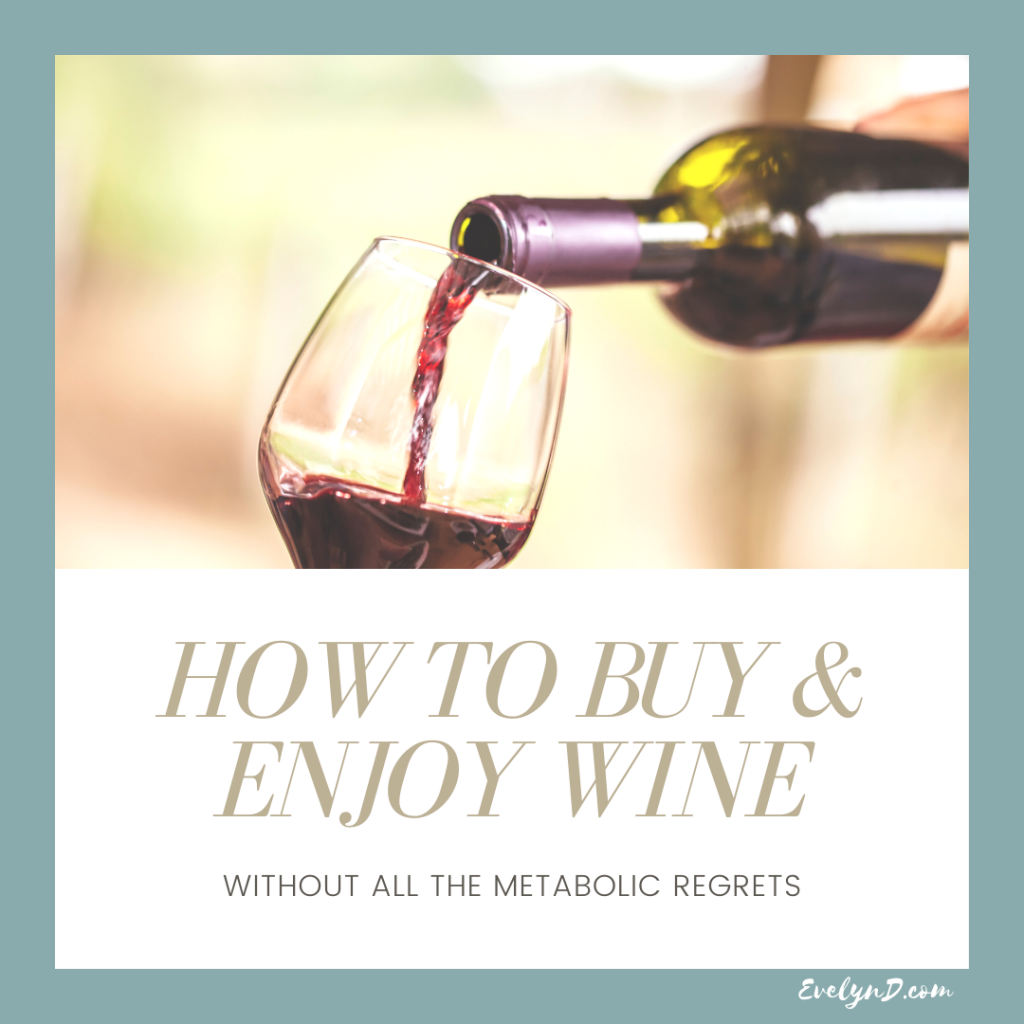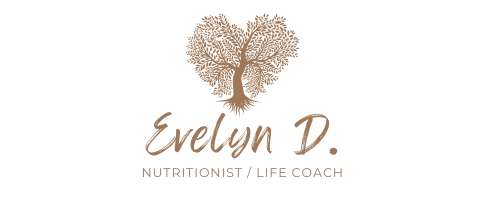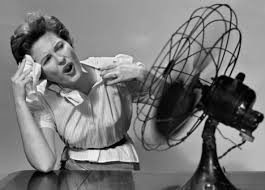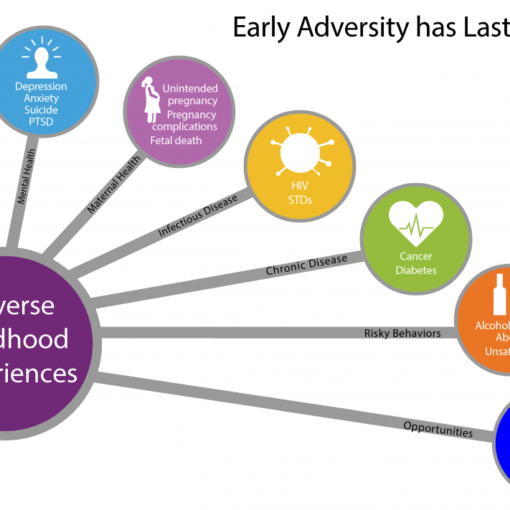Without All The Metabolic Regrets
If you’re a wine lover like me, there’s just something about it – right?
Wine feels sophisticated…special – it’s even seasonal.
Nothing’s better than a crisp white or rosé in the summer at the beach.
Or a warming, full bodied red on a cool autumn night curled up by the fire.
A fresh beaujolais on Thanksgiving.
A sparkling Prosecco or Champagne on Christmas and New Years Eve.
Wine is something to savor and celebrate with friends.
It’s just nice.
Even the labels and immense varieties of wine are intriguing – you just want to know more.
But there’s a dark side to wine.
When consumed in excess, it can lead to terrible sleep, headaches, a hangover and that dreaded weight gain.
So how do you find the right balance?
 Following a ketogenic or low carb lifestyle, people often think that wine is out of the picture…
Following a ketogenic or low carb lifestyle, people often think that wine is out of the picture…
In fact, some incorrect Keto/Low carb food lists indicate that WINE is on the NO list…and that’s just not true.
Alcohol is not a carb and it doesn’t turn to sugar. It’s its own macronuntrient with 7 calories per gram.
It’s the sugar added to alcohol (including some wines) that’s the problem on a ketogenic diet and it’s how we metabolize alcohol that impacts the liver, ketone production and fat metabolism.
I started my ketogenic journey about 6 years ago and I can tell you I probably wouldn’t have chosen the keto approach if wine were a HARD NO.
But it’s not a free-for-all either – by any means…
I DO have to select and imbibe wine and alcohol with mindfulness and moderation in order to feel good, balance my weight/hormones and to stay in ketosis…
So I have some tips, tricks and strategies that have helped me along the way:
SELECTING WINE
There’s an easy, fool-proof, and more expensive way to do this and then there’s a time consuming, yet much cheaper way to do this.
I’ve done both and now I just go for the cheaper way – and it’s no longer that time consuming, because I’m learning what to look for – and when I find a wine that works for me, I buy it again.
First, the foolproof expensive way is to join a wine subscription service like Dry Farms Wine.
I love this company and what they stand for – sustainability, biodynamic wines, keto friendly and as healthy as you can get. Just good vibes all around.
They’ve done ALL the research, sourcing, testing and curating for you.
I subscribed to their service for a few months a few years ago and I can tell you, it was so fun.
I enjoyed every single wine they sent me. (In fact, I found myself drinking more than usual which wasn’t a good thing actually).
Dry Farms only sources low alcohol, no sugar wine with no crap or additives. It’s like the Bulletproof Biohacked Coffee equivalent – only with wine. If you want to learn more about what’s in commercial wines, the effects on your health and the planet and why it matters, go to their website. The average price per bottle is around $25-$30.
Other services are popping up that offer ‘clean wines’ – some are a little less expensive too. I did a few shipments from Thrive Market which averages between $15-$20 per bottle and they were very good and more in my price range. Most of these services don’t seem to focus on being Keto Friendly and I doubt they’re testing for mold and high sulfites like Dry Farms, so you still need to do your research or a little trial and error.
Since I cancelled my wine memberships, I currently buy my own wine and here’s how I approach it:
- I avoid US wines. I know that sounds horrible but this 2019 report should convince you that the risk isn’t worth it. A similar report also tested high arsenic levels in dozens of California wines.
- Opt for European wines. Although not a guarantee of purity – there’s no way to know for sure if wine makers might have shady practices or ingredients over there too…but we do know that the use of glycosphate and many other chemicals that are completely standard practice and approved here in the US – are banned and/or tightly regulated in Europe. Other countries may be OK to buy from too… Maybe a Argentinian Malbec or a nice Chilean variety now and then, but mostly I stick to French, Spanish, Italian and even some German, Austrian varieties have been wonderful.
- Look for lower alcohol wine. Alcohol levels in wine under 12.5% are what Dry Farms Wine curates. The percentage of alcohol is indicated somewhere on the bottle. Some can be over 20%! Also in the US – alcohol percentages on labels aren’t regulated at all compared to Europe.
- Look for biodynamic and/or organic wines. Less pesticides and herbicides means less toxins – and sustainably grown means that it’s better for the planet.
- Sulfites are added to most wines to preserve them and unfortunately, labeling is very vague (most just say: CONTAINS SULFITES)…This may the ingredient that leads to bad reactions in some people that don’t metabolize sulfites well. I haven’t really found a great tasting sulfite-free, European wine yet.
TIPS & SUPPLEMENTS TO WARD OFF HANGOVERS
My tolerance for wine and alcohol has drastically reduced as I’ve gotten older… :/
Being ketogenic also makes me less alcohol tolerant because of liver processes and the lack of carbohydrates or glucose in the cell to absorb or buffer the effects of alcohol.
So it’s important to moderate alcohol in general.
Absorption in women is lower than men so I usually find that 1-2 and no more than 3 glasses of wine per sitting…and I feel (and sleep) pretty good.
Everyone is different so find your sweet spot and aim the for that 1 -2ish times per week if you’re working on weight loss or hormonal balance.
Other good practices include:
- Don’t drink alcohol on an empty stomach. Definitely don’t break your fast with alcohol!
- Drink lots and lots of water as you drink alcohol.
- If possible, move a bit after you drink to improve alcohol mobilization and detoxification. Don’t do anything too strenuous though. Dancing or a brisk walk (maybe some consensual sex :)) may help move things along metabolically.
- Some swear that taking a NSAID like ibuprofen can help reduce hangovers. Don’t take Tylenol though because it’s tough on the liver.
SUPPLEMENTS:
(NOTE: I have a WINE Protocol in my online supplement store if you want to try these…or have them on hand. They WORK! Follow the instructions to create an account and/or reach out to me and I can send the recommendation to you. Check with your doctor before taking any new supplements though in case there are contraindications with any medications or health conditions.)
- I mentioned that sulfites may be the culprit when it comes to wine and headaches. You may also notice symptoms like a stuffy nose and flushing. Try taking ~50mcg molybdenum chelate (an absorbable form of a specific mineral) before drinking to better support sulfite metabolism.
- Wine is also high in Histamine and many people have enzyme deficiencies that are needed to break down histamine properly. Taking about 4mg of Diamine Oxidase from porcine kidney with a bit of Vitamin C (10 mg) should help clear it.
- Other compounds that help to balance histamine and detoxify alcohol include Nettles, Quercetin, Rutin, NAC, Milk Thistle & Vitamin B6.
- For blood sugar and cortisol balance to support sleep, I also take an evening cortisol supplement along with melatonin to ensure the best sleep possible – I find this also helps to prevent the sweats and racing heart rate that can occur with alcohol metabolism.
MODERATION MINDSET
As I’ve shared over the years, I’ve been working on my moderation approach with wine. The Life Coach training I’ve been immersed in has been invaluable. I’ve found a great balance – FINALLY!
I practice “allowing” and feeling/experiencing urges instead of resisting or avoiding them or distracting myself from them. THERE’S a HUGE DIFFERENCE!
I get very curious about what my mind impulsively wants (Dopamine/Stress-Anxiety Relief/Automation) vs. what my higher brain knows is best (Balance, Good sleep, True Pleasure, Connection)
I use alcohol less for stress and ‘to take the edge off’ and more for pleasure and connection – that’s been my goal all along.
This doesn’t mean I’m perfect. I’m just always practicing.
My body will tell me when I may be overdoing it with weight fluctuations, low energy and inflammation.
Yours will too.
So tell me your takeaways…will you shop for healthier wines? Maybe try my WINE PROTOCOL found in my online dispensary? Or are you practicing moderation? Or maybe you’re all about alcohol abstinence…not everyone wants to or likes to drink! (So LUCKY!)
Share in the comments or by reaching out directly.
Cheers




